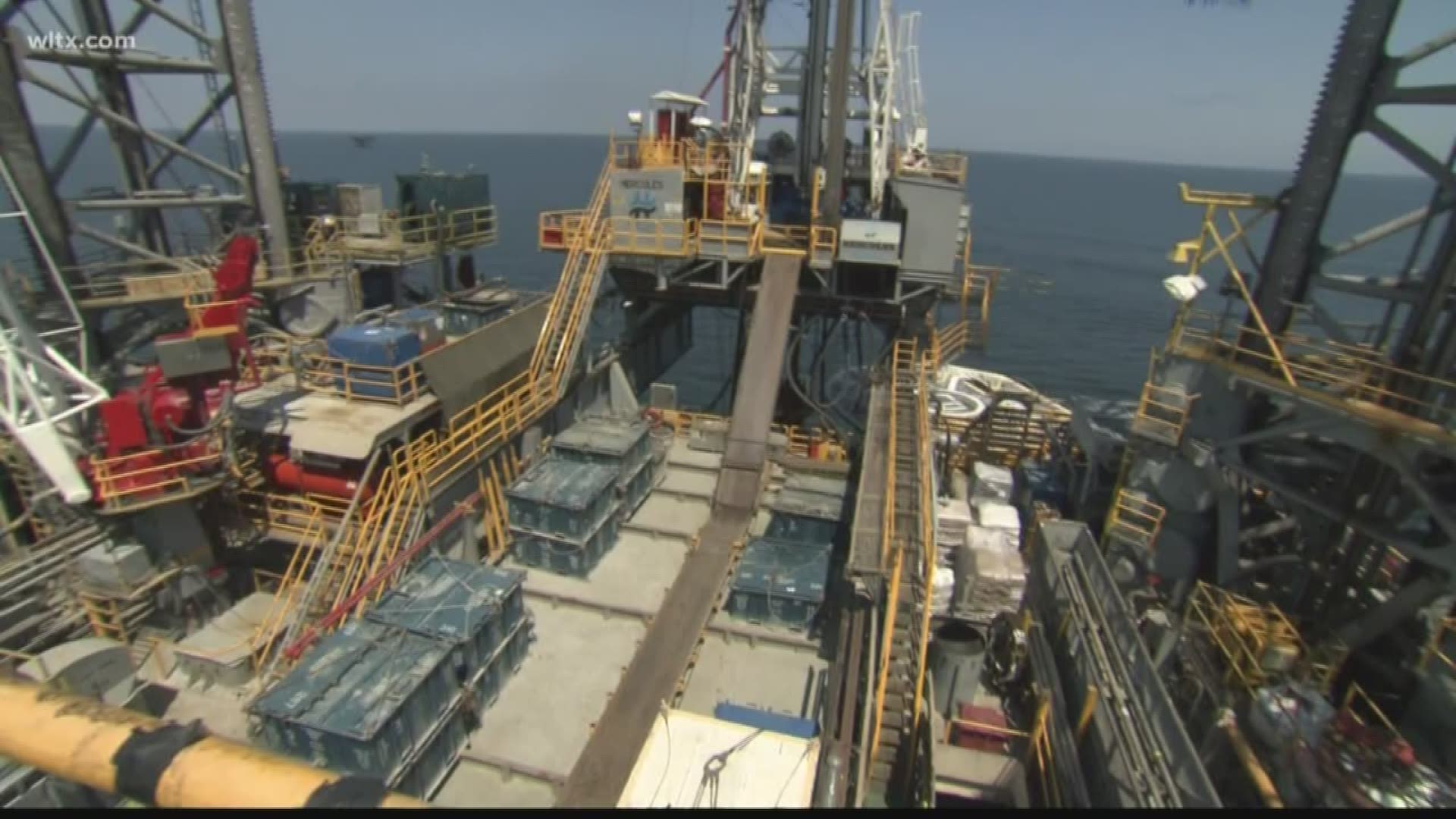COLUMBIA, S.C. — A growing majority of lawmakers are showing their support for a bill, which they say would protect South Carolina's beaches and waters for tourism and for the environment.
The growing support for the ban comes as the Senate took another step forward to pass its ban bill.
Alan Hancock with the Coastal Conservation League said they've been against offshore drilling for more than a decade.
“It threatens our beaches, our salt marshes, our lakes, and our rivers. It would mean oil spills in Charleston harbor, tar balls on our beaches,” Hancock claimed in his Columbia office on Friday.
Hancock said they noticed a growing movement against offshore drilling and onshore infrastructure about 4-5 years ago at the local level. Eventually, the movement made it to the State House capturing lawmaker attention and the Governor’s office, according to Hancock.
To his point, a majority of South Carolina lawmakers now seem ready to agree with their local counterparts and make it into state law.
Two proposed bills in the House and Senate would ban Atlantic oil and natural gas intake infrastructure along the coast.
The bills also ban offshore oil and natural gas exploration in South Carolina's territorial waters.
You can read the House’s version here and the Senate’s version here.
Senators from both sides of the aisle and different parts of the state said it's good policy.
“I think it's a recognition that we need to try to preserve our quality of life on the coast. There's been a tremendous increase in the number of people moving to South Carolina recently,” said Senator Stephen Goldfinch, a Republican representing Georgetown.
RELATED: Offshore drilling ban, veterans in nursing, and medical marijuana on State House minds this week
“It really is some of the most beautiful real estate in the world, that's our natural heritage. And so, you know you talk about the environmental protection. I don't know what would happen in a state like ours if we were to have a spill like they've had on the gulf coast and things like that. It would just-- it would wipe it out,” added Senator Thomas McElveen, a Democrat representing Sumter.
The Senate bill has 33 cosponsors and the House bill has more than 70, clear majorities in both chambers.
Hancock and lawmakers are hopeful one of the bills makes it to the Governor's desk this session.
“I hope the Senate can get to it quickly, get it to the House and to the Governor. But, yes, it's great to see all the people at the State House who are supporting this initiative, because it shows we value what we've been given, what we have in this state. But, more importantly, the folks up here are probably showing that overwhelming support because people in the state appreciate it, you know people in the state realize how valuable that is,” McElveen said.
“Yeah sorry, we're not an industrialized coastline. This is an environmentally friendly, eco-friendly coastline, we've got one of the best coastlines and beaches in the world really. It's protected, almost 90 miles of it is protected by national wildlife refuge and conservation easements. And so, there's really not a great suitable place to put that onshore infrastructure in the first place,” Goldfinch said.
The Governor’s office said Henry McMaster will continue to push for protections to South Carolina’s coastline.
“As Governor McMaster has said many times before – he will do anything in his power to ensure that we never see seismic testing of offshore drilling off of the coast of South Carolina,” said Communications Director Brian Symmes.
However, the bills are not universally popular.
The Senate bill, which made it out of committee this week, had one vote against. And, not all lawmakers are signed on as co-sponsors.
Supporters said offshore drilling and related infrastructure can bring in high-paying jobs, which they claim do not require a college degree. They also said revenue from these types of projects could offset other costs like higher education and infrastructure improvements.
“This legislation is premature in the sense that the federal government has indefinitely put on hold all development of natural gas and oil in the Atlantic. In a scenario where exploration and development of offshore resources are approved by the federal government, this measure would ensure that the citizens and workforce of South Carolina will not benefit from increased tax revenues and the potential for thousands of local jobs directly tied to offshore development,” said Mark Hamon, with the South Carolina Petroleum Council.
Hamon, the Council’s Executive Director, also said keeping options open for offshore drilling could help America gain energy independence.
The Senate expects to get to the bill after the weeks-long education debate ends.

